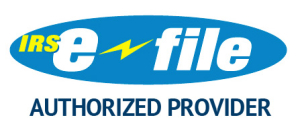FBAR
While filing US tax returns is well-known,do you know FBAR Filing? FBAR stands for “Foreign Bank Account Report”, and you’ll use the FinCEN 114 form to file it. What’s the big deal, you ask? Well, failing to file the FBAR can draw the attention of the IRS and lead to harsh penalties. To make sure you stay compliant (and off the IRS’s radar!), we have compiled the things you need to know about FBAR reporting.
The purpose of the foreign bank account report is to prevent tax evasion, specifically by requiring Americans to disclose any funds or assets held in non-American banks. You submit an FBAR to FinCEN, the Financial Crimes and Enforcement Network of the U.S. Treasury Department, rather than the IRS.
Due to their inexperience and lack of FBAR understanding, the majority of tax advisors do not advise their clients to submit FBAR, which forces them to pay significant fines to the IRS and FinCEN. Tax consultants who are only extremely familiar with FBAR are unable to assist taxpayers in filing FBARs with FinCEN since the tax consultants would charge fees to file FBARs.
Failure to report an FBAR to FinCEN will incur penalties ranging from $12,459 to $1,24,588, as well as possible criminal charges.
Accounts that must be disclosed
Many people have the false assumption that an account does not need to be declared if they have multiple accounts overseas and one of those accounts does not exceed $10,000. That is untrue. Recall that all accounts must be declared on the FBAR if the maximum total value of all overseas accounts on any day during the tax year exceeds $10,000.
- Savings account, bank fixed deposit account
- Brokerage and securities account
- Commodity futures or options account
- Insurance policy with cash surrender value
- Annuities cash value
- Mutual funds
Who is required to file the FBAR?
If the total value of all overseas financial accounts exceeds $10,000 at any point during the calendar year, all U.S. people with a financial interest in or signatory authority over a foreign financial account are obliged to file an FBAR.
According to the IRS, "United States people" who satisfy the reporting level are required to file the FBAR. The phrase "US persons" means:
- Citizens
- Resident aliens
- Trusts
- Estates
- Domestic entities
Can The IRS See My Bank Account?
According to rules of FATCA, foreign financial institutions must gather and either directly or indirectly submit certain information regarding accounts held by US citizens to the IRS. The information provided by taxpayers and this information can readily be compared by the IRS. This makes it possible for them to spot instances where a taxpayer has neglected to submit an FBAR. Please disclose your non-compliance before the IRS does so that you don't have to wait for them to find out.
FBAR Deadlines
The FBAR must be filed by April 15th of every year. If you miss this deadline, there is an automatic extension to October 15th.
Can I File FBAR Myself?
Preparing and submitting this form on your own can be daunting. USTaxHub can prepare and complete the FBAR reporting electronically on your behalf. This way, you can be sure you follow IRS regulations.





